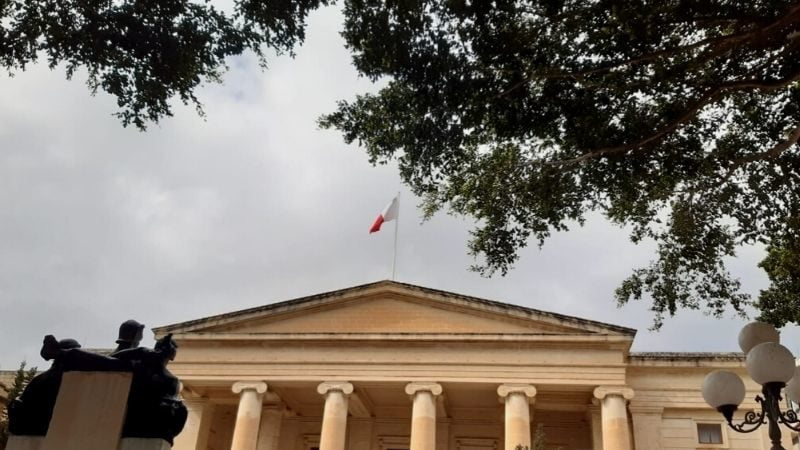Journalists of The Times of Malta are set to be prosecuted for contempt of court proceedings in what is becoming a widening dragnet of prosecutions that has ramifications for the right to know and freedom of expression.
The decree to prosecute was served by Magistrate Rachel Montebello who is presiding over the compilation of evidence of Yorgen Fenech, accused of complicity in the assassination of Daphne Caruana Galizia.
In response to a legal application by Fenech’s lawyers, Montebello deviated from standard procedure of informing the victim’s lawyer and the prosecution for their response and proceeded to order contempt of court proceedings as well as notify the police commissioner in case ‘he may wish to investigate’ the source of leaks of Fenech’s WhatsApp chats.
These leaks featured in articles in the Times of Malta in recent weeks, among them articles revealing the WhatsApp chats between Fenech and high officials of regulatory bodies. Some of those articles implicitly raised questions on whether such camaraderie could have swayed regulatory decisions affecting Fenech’s business interests.
Montebello based last Friday’s decree on an earlier decree, delivered on 30 November last year, in which she banned publication of any content extracted from Fenech’s phone that had been deposited as evidence in court. Last year’s decree only allowed the publication of content that was presented in the course of the proceedings in open court.
An analysis would have to start from the point that last November’s decree was predicated on judicial discretion rather than any specific provisions of law.
In such cases, in which prohibitions on publication inherently impinge on fundamental rights such as freedom of expression and the right to know, a court has to use such curbs as judiciously as possible and only if absolutely necessary.
In this case, that necessity can only be derived from the greater interests of the administration of justice and, in conjunction with it, the accused’s right to a fair trial.
Montebello did specify in last Friday’s decree that the court was motivated by these principles, but the latest decree again seems an overreach. This is because at least some of those articles Fenech’s lawyers complained about, which reproduced the WhatsApp chats between Fenech and high officials, had nothing to do with the assassination of Caruana Galizia. As such, it’s hard to imagine how they could be prejudicial to a trial narrowly focused on the assassination.
Moreover, the case is still at the compilation of evidence stage and it may be many months, if not years, before Fenech is brought to trial. This is an important consideration – in such cases in British law, the time between publication and trial has emerged as a concept known as the ‘fade factor’: the greater the time, the greater the fade factor, and the lesser the chance of prejudice.
As for the part of the decree ordering notification to the police commissioner so that, “if he so feels”, he would investigate the source of the leaks is also confounding. What would the police do? Ask journalists to reveal their sources? The confidentiality of sources is protected.
In a broader sense, this decree gives a worrying signal. People have a right to know, and that right can only be curbed if it impinges on the fundamental rights of others or in grave matters such as national security.
The articles are clearly in the public interest. This is because media revelations on the chats between Fenech and high officials of regulatory bodies serve to foster accountability, political reckoning and reform. That is in fact the role of the media as a watchdog.















what happened to the two lawyers who tried to bribe the times journalist?
Are you expecting anything to happen? The usual: ‘victim journalist gets condemned in the name of the freedom of the press’, and the accused will be credited with points, should they eventually choose to join the judiciary.
Quote – “As for the part of the decree ordering notification to the police commissioner so that, “if he so feels”, he would investigate the source of the leaks, is confounding.
My appraisal of this, is the presence of, either the OCD syndrome, or the manifestation of altuism, by ‘passing the buck’.
Being in the Easter period, Pilatus may also be re-enacting his part.
‘Free press must be preserved’ – Theresa MayThe free press as “one of the foundations on which our democracy is built”,the risk that voters will turn to “untrustworthy” sources for the information on which to form their views.“Good quality journalism provides us with the information and analysis we need to inform our viewpoints and conduct a genuine discussion. It is a huge force for good“This is dangerous for our democracy. When trusted and credible news sources decline, we can become vulnerable to news which is untrustworthy.”“A free press is one of the foundations on which our democracy is built, and it must be preserved.” 6th Feb. 2017
Montebello held me responsible for what someone else wrote on an original post of mine, when Facebook isn’t responsible for the same. It was a warning but wasn’t heeded by anyone except Dr Bernard Grech who called me when she awarded damages to Ms Cutajar.